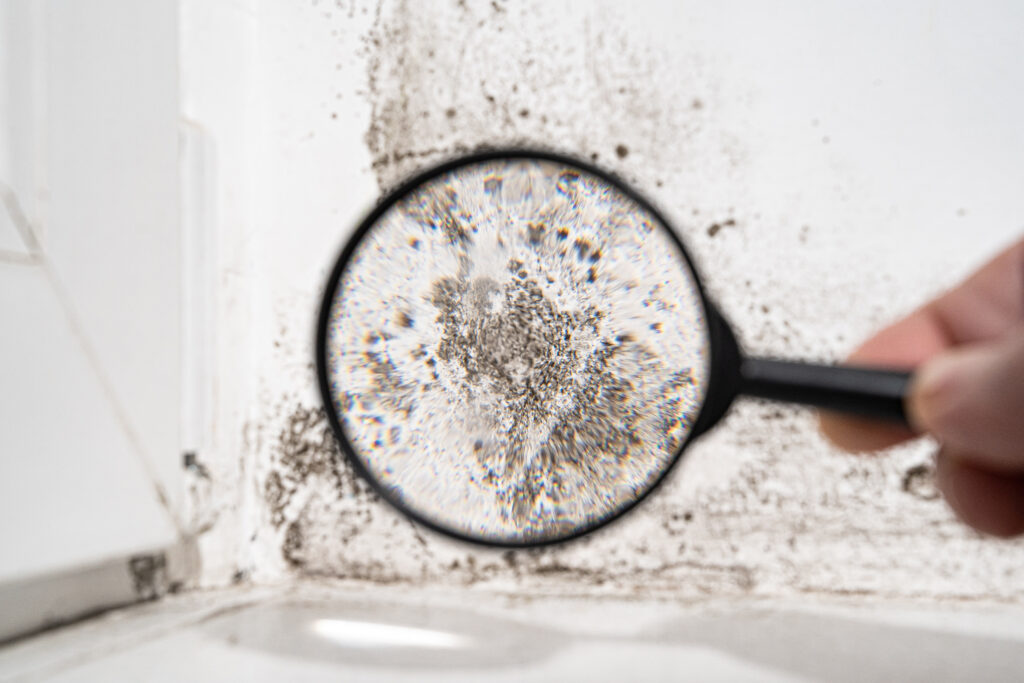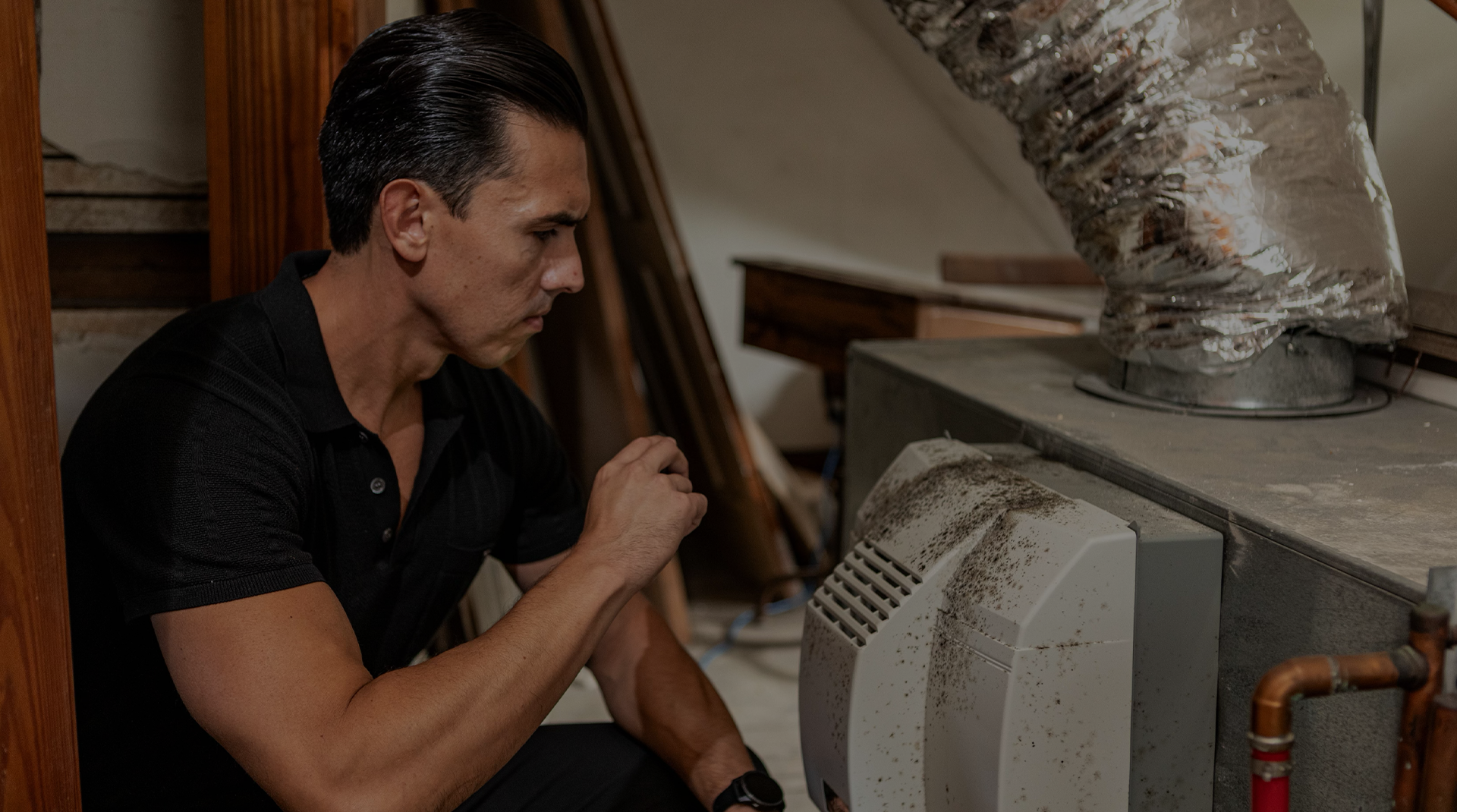Mold is a serious issue in New York City—and one of the most common questions homeowners, tenants, and even business owners ask is: Do I really need a mold inspection?
The short answer is yes—if you suspect mold, have experienced water damage, or notice unexplained health symptoms in your space, a professional mold inspection isn’t just a good idea—it’s essential. But even beyond suspicion, many NYC properties need mold testing to comply with legal, real estate, or insurance requirements.
This guide will break down how to know when it’s time to call a licensed mold inspector, what the inspection process involves, and why early testing could save you thousands in repair costs—or worse, a long-term health crisis.

The Problem With Waiting
One of the biggest mistakes people make is assuming they’ll “see” mold if it’s there. In reality, mold often grows out of sight—behind drywall, under flooring, inside HVAC systems, or in spaces like attics and crawl spaces that rarely get inspected.
Waiting until visible mold appears or until health symptoms worsen is a costly delay. Mold spores are microscopic and airborne. They spread invisibly and can contaminate multiple rooms or units within a building before you even know there’s an issue.
The longer mold remains undetected, the more structural damage it causes and the more deeply it embeds in your materials. The longer you breathe it in, the more harm it can do to your lungs, immune system, and overall well-being.
Health Reasons to Get a Mold Inspection
Mold exposure is particularly dangerous for people with asthma, allergies, or chronic respiratory conditions—but it can affect healthy individuals as well. Many NYC residents live in shared buildings or aging apartments where moisture problems are common and air circulation is poor.
If you or someone in your household is experiencing the following symptoms regularly at home or work—but feel better when outside or in other environments—it may be a sign of hidden mold:
- Persistent coughing or wheezing
- Sneezing or sinus congestion
- Itchy or watery eyes
- Headaches or brain fog
- Skin irritation or unexplained rashes
- Recurring fatigue or breathing difficulty
Children, the elderly, and individuals with compromised immune systems are especially sensitive to mold exposure, and for them, early detection can be critical.
A mold inspection can confirm whether mold spores are present in the air or on surfaces, and identify specific types of mold that may be more toxic, such as Stachybotrys chartarum (black mold), Aspergillus, or Penicillium.
Property & Structural Warning Signs
Beyond health symptoms, your property itself often gives signs that mold may be developing—though not all of them are obvious.
The most common and often ignored warning sign is odor. A persistent musty, earthy smell is often your first indicator. This is the smell of active mold growth, often occurring behind walls or under flooring where moisture is trapped.
Other signs include:
- Discoloration or water stains on ceilings or drywall
- Peeling paint or bubbling walls
- Warped baseboards or wood floors
- Recurring condensation on windows or walls
- Soft or sagging drywall and ceiling tiles
These symptoms almost always accompany or follow a water event—whether from a pipe leak, roof leak, flood, or even excessive humidity. In NYC, many buildings are decades old, and even minor water issues can quickly lead to mold in high-risk zones like bathrooms, kitchens, or basements.
Legal & Transactional Reasons to Schedule Mold Testing
In many cases, the need for mold testing isn’t just about health or comfort—it’s legally necessary. New York City has strict tenant protection laws related to indoor air quality and mold.
Under NYC Local Law 55, landlords of residential buildings are required to keep apartments free of indoor allergen hazards like mold and must respond promptly to tenant complaints. Failing to do so may result in violations, legal complaints, or lawsuits.
Similarly, if you’re buying or selling a property, a mold inspection is often required as part of the due diligence process. Buyers may request it, lenders may require it, and sellers often need documentation to prove their property is mold-free.
If you’re making an insurance claim for water damage, a mold inspection is often necessary to validate the scope of the problem and secure approval for remediation or repairs.
What Happens During a Mold Inspection?
A certified mold inspection conducted by a licensed NYS Mold Assessor involves far more than a glance at walls or ceilings.
The process typically includes:
- Visual Assessment: A full walkthrough of the property to identify high-risk zones and signs of water intrusion or mold growth.
- Moisture Mapping: Using moisture meters and thermal imaging to detect hidden leaks or damp materials behind walls or under flooring.
- Air Sampling: Air is sampled from several rooms and compared with an outdoor control sample to determine if airborne mold spore levels are elevated.
- Surface Sampling: Swab or tape-lift samples are taken from visible mold or suspicious surfaces for lab testing.
- Lab Analysis & Reporting: All samples are sent to an accredited lab. Within 24–48 hours, results are returned showing mold type, concentration, and recommendations.
- Written Report: The inspector provides a legally recognized mold assessment report that can be used for remediation planning, real estate transactions, insurance filings, or tenant-landlord documentation.
How Often Should You Test for Mold?
If your home or building has experienced water damage, mold testing should occur immediately—even if repairs were made. Likewise, any time a musty odor persists or health symptoms arise, testing is warranted.
For property managers, regular testing—especially in common areas like basements, laundry rooms, or storage units—can prevent long-term issues and keep your building in compliance with NYC health codes.
For homeowners and condo owners, mold testing is a smart preventive step every few years or following any known moisture issue. For renters, it may be necessary to request testing through your landlord or initiate testing independently if your concerns are not addressed.
The Value of a Professional Mold Inspection in NYC
In a city where buildings are stacked, aging, and often complex in layout, guessing is not good enough. Mold grows silently but spreads aggressively. A certified mold inspection helps protect your investment, your health, and your peace of mind.
When performed properly, it provides clear, actionable data that can prevent a minor issue from becoming a major repair—or worse, a legal battle or chronic health condition.
Book Your Certified NYC Mold Inspection Today
If you’ve noticed unexplained health symptoms, water damage, or any signs of indoor mold—or if you simply want to verify that your home, office, or apartment is safe—book a certified mold inspection with our team today.
We serve all five boroughs with licensed, NYS-compliant inspectors and fast lab results. Whether you’re a homeowner, renter, landlord, or real estate professional, we deliver objective assessments you can trust.

